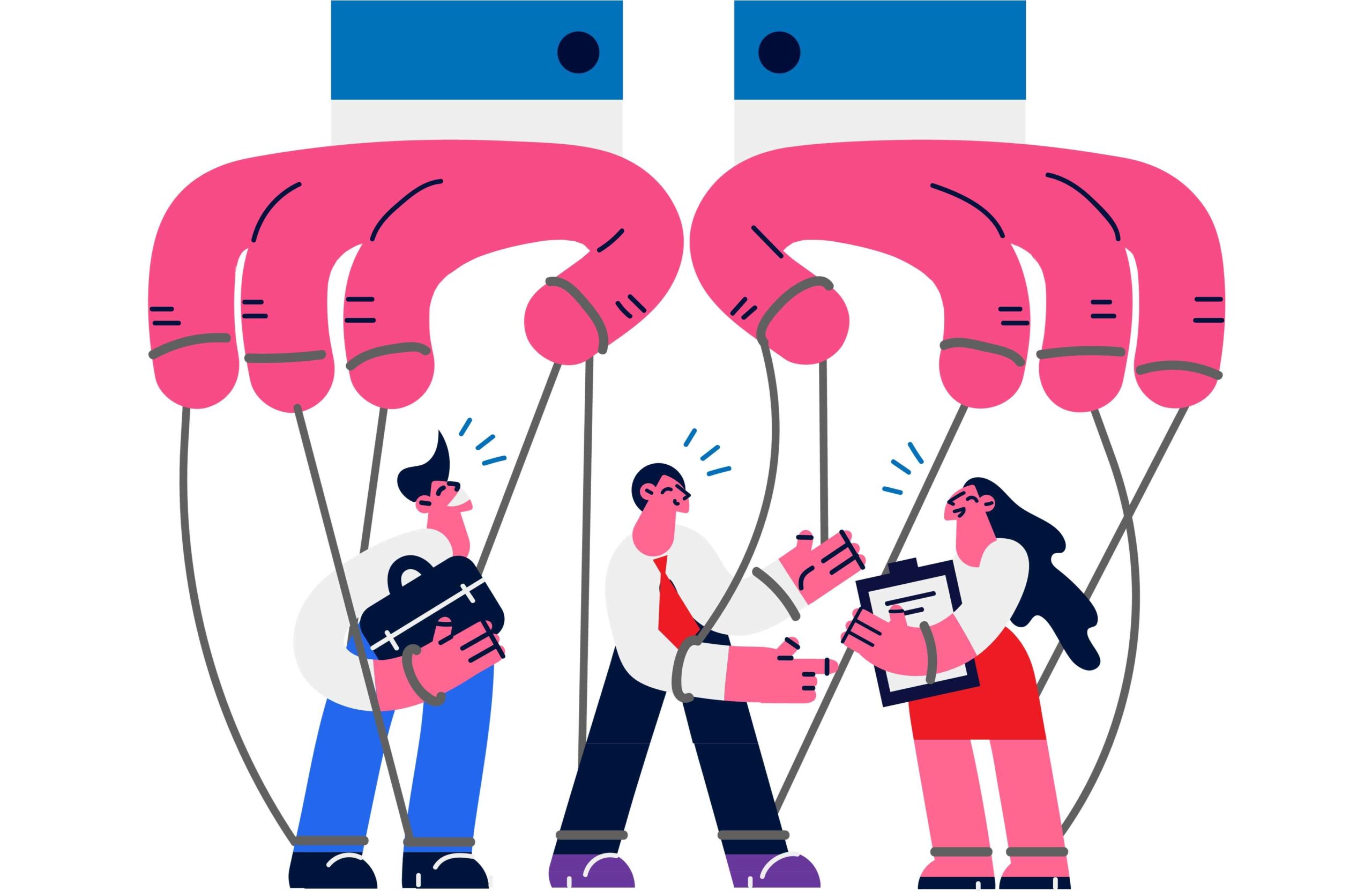Distinguishing between whether you are being influenced or manipulated is a valuable skill that can help you make good decisions and protect yourself from harm. Everyone wants self-respect in personal relationships and at the workplace. Unfortunately, there are times we might have to endure manipulative people disguising themselves as acting for our good. Emotional manipulation is a clever psychological tactic used to gain control of people by toying with their emotions. In such a scenario, it can often be difficult to determine if someone is influencing or manipulating you. The result can lead to poor mental health, emotional insecurity, frustration, and low self-esteem. So how does one understand if they are being influenced or manipulated?
What Does the Term ‘Influence’ Mean?
Influence is when you try to make a person behave or act the way you want them to without force or coercion. Influencing someone means making them believe that certain behaviors and actions are in their best interests. Soon, the person behaves accordingly and voluntarily, shaping their actions to suit yours. Influencing can be good or bad, depending on the person doing the influencing. It can be out of genuine regard to see someone improve in life, or it could be to gain an ally or to ensure the person under the influence follows your agenda. Here are some of the factors that determine influence:
- Intent: A person believes their perspective will benefit another under their influence. It could be for good or bad.
- Transparency: An influencer has no hidden agenda and will produce reasons behind their suggestions with logic and emotional appeal. They will then let the person under their influence accept or reject those recommendations.
- Influencers respect free will: An influencer respects the independence and free will of the individual. They will understand how the final decision lies with the person being influenced and accept it.
- Positive Impact: Influencing often results in a positive outcome, especially when the advice is helpful and benefits one’s growth. It can be empowering and in tune with an individual’s success and goals.
What does ‘Manipulation’ entail?
A manipulator acts out of selfishness to pursue their agenda by controlling others. Manipulators care little about the safety of others and force a person to commit to them out of guilt, fear, or embarrassment. Manipulation is cornering someone to make a fast decision they would never normally make if they had time to think about it. Manipulation is devoid of empathy and uses tactics detrimental to a person’s mental health. Such tactics range from punishment to criticism and public embarrassment. It is all one-sided for the sole benefit of the manipulator.
Emotional manipulation employs the same techniques to drain another person’s energy or destabilize their emotional well-being. According to psychologists, toxic cycles of violence, narcissism, or poor connections in the manipulator’s childhood can frequently cause manipulative behavior.
11 Signs of of Manipulative Behavior
There are several signs to suggest you’re being manipulated. It could be behavioral traits, actions of the manipulator, and how you feel when under the influence of manipulation. Manipulation can occur anywhere in family and social circles, romantic relationships, and the workplace.

Gaslighting
The most common sign and tactic of manipulation is gaslighting, a conversational tactic designed to separate you from your instincts, thoughts, and the logic of the world around you. The sole purpose of gaslighting is to induce a sense of guilt and self-doubt in someone who begins to feel that the manipulator is right after all. Gaslighting makes you question your sanity with self-doubt, making it easy for the manipulator to replace it with his vision.
Manipulative Questioning
Like gaslighting, manipulative questioning controls a person’s actions without realizing it. Manipulators will put forth questions in the form of statements such as:
Assumptions to solicit agreement: “You don’t actually think that’s a good idea, do you?”
Showing disapproval: “You’re not going to wear that, are you?”
Guilt Tripping
Manipulators use guilt to make you feel awful and convince you to do what they want. An example of inciting guilt: “After everything I’ve done for you, is it too much to ask for you to help me out this one time?”
Playing The Victim Card
A manipulator will often play the victim card to induce guilt and sympathy. They will force you to believe that you are responsible for their problems. They do not hesitate to fake or exaggerate a problem that can only be resolved by you acting in the way they want.
Passive Aggression
Passive aggression is a common ploy, and manipulators are often used in toxic relationships. Manipulation, in this case, is when someone expresses anger through silent treatment or sarcasm. This way, a manipulator avoids confrontation, simultaneously controlling a situation like a guilt trip.
Comparisons
Making comparisons is a subtle way of manipulating someone to make them feel bad about themselves. A manipulator will compare you to someone else or your current situation to something in the past just to induce guilt and make you ashamed, inadequate, and inefficient.
Emphasizing Your Insecurities
This is a classic ruse by manipulators who will prey on your insecurities and even emphasize them. They might comment on an aspect of your appearance that you might not like, exaggerate the result of a mistake, or question your capabilities to make you feel insecure about yourself. This type of manipulation is often played out in a workplace with a toxic boss.
Emotional Manipulation
Like the earlier point, a manipulator will often highlight your faults and make fun of them, insisting later it was a joke. EG: “You look great for someone your age,” or “You look nice today, for a change.” Such statements imply you look too old or don’t usually look good, creating a sense of vulnerability and insecurity. If you express disappointment, they might retaliate by saying, “Can’t you take a joke?” moreover, they might accuse you of being too sensitive, which might affect your self-esteem, especially when you are made to feel, your feelings don’t matter.
Diversion Tactics
A famous workplace manipulation is often used by a boss and an employee to divert attention from a specific topic. It could be because of a question of their inefficiency, an extra effort on their part, or a favor they might be reluctant to agree to. In this case, a manipulator will try and confuse or distract you from the main issue to divert your attention toward something else. They may also refuse eye contact, shrug you off and walk away.
Manipulation In Relationships
An intense romantic relationship can sometimes lay the groundwork for one partner to control the other. Confusing, disorienting, and bombarding a partner with fantasies of good times or the good times of the past is a classic tactic of a manipulative partner to get what they want.
When Your Gut Tells You Something is Wrong
When you feel that what is asked of you is wrong, you need to pay attention. The enteric nervous system, part of your autonomous nervous system, is found in your intestines and is responsible for recognizing and transmitting threats to the brain. It is independent of conscious awareness and is called a gut feeling.”
How to Handle Manipulative Behavior
Dealing with manipulative people requires tact because manipulators often hide their motives and never admit their intentions, even under pressure. Thus, you could try the following advice:
- Do not feel guilty or ashamed, regardless of how much a manipulator makes you feel.
- When you are threatened covertly, confront the manipulator about it.
- Ask a manipulator to tell you directly what they want
- Do not reveal how you feel from the manipulation because such feelings can be used against you
- Be honest, sincere, and direct when dealing with a manipulator, and do not indulge them in their game
Conclusion
Learn to understand yourself, your values, and your beliefs. Know your boundaries and your vision of what you want. When you are clear about yourself, it won’t be easier for anyone to make you think differently because manipulation is about trying to change how you believe something. Most importantly, be direct with a manipulator and not indulge in mind play with them.
















